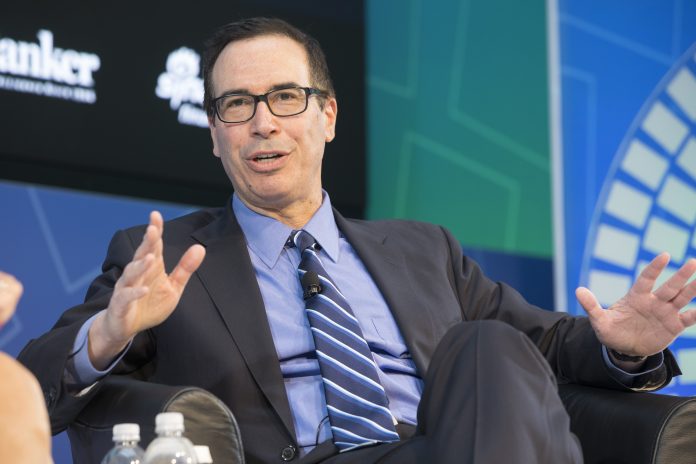The draft US tax reform bill contains measures that could unfairly disadvantage European business, according to the finance ministers of Germany, France, the UK, Spain and Italy. They sent a letter to their American counterpart, US Treasury Secretary Stephen Mnuchin, and copied it to all senior Republican politicians in the Congress and Senate.
According to the finance ministers from Europe’s five biggest economies, the US tax bill, if passed as written a week ago, will represent a break with global fair-taxation rules as applied to corporations, and represent a thinly disguised form of trade war.
“The United States is Europe’s single most important trade and investment partner,” the finance ministers wrote. “It is important that the US government’s rights over domestic tax policy be exercised in a way that adheres with international obligations to which it has signed-up. The inclusion of certain less conventional international tax provisions could contravene the US’s double taxation treaties and may risk having a major distortive impact on international trade.”
As reported by Deutsche Welle (DW), Germany’s international broadcaster, the European ministers are concerned about the proposed “excise tax” of 20% and the “base erosion and anti-abuse tax” (BEAT) provision.
“Base erosion and profit shifting” (BEPS), is a technical term referring to various accounting schemes corporations use to legally shift profits from where they’re earned, to ultra-low tax jurisdictions.
The European ministers also warned against a preferential tax regime for “foreign-derived intangible income”.
Are the criticisms from Europe justified? Yes, according to experts interviewed by DW.
“The European Commission’s criticism of the US tax plans is justified,” said Clemens Fuest, the president of the Ifo Institute for Economic Research in Munich. “The proposed measures would disrupt international trade and lead to double taxation.”
Meanwhile, Tobias Hentze, an economist at the German Economic Institute in Cologne, told DW that he was worried the tax reforms could be the spark for the next round of a “race-to-the-bottom” of jurisdictions competing to offer corporations ever-lower tax rates.
If the reforms go through, Hentze said, the US will go from being a high-tax to a low-tax country.

